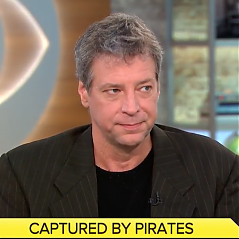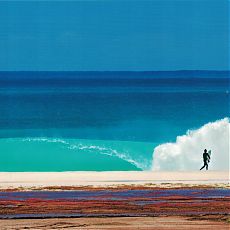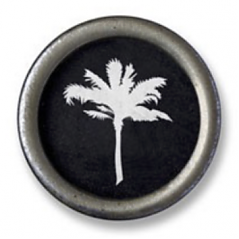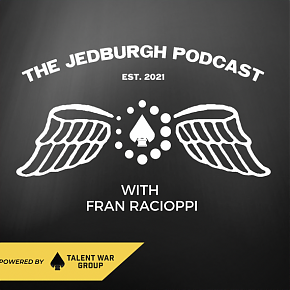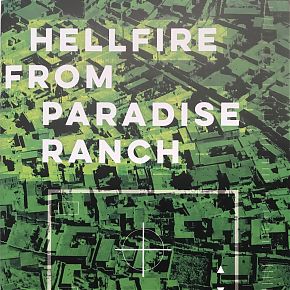For the Pleasure of Seeing Her Again
Michel Tremblay should be more famous in the States
May 2002
I think Derek Walcott holds the title for Greatest North American Playwright Almost Never Produced in San Francisco, but Michel Tremblay runs a close second. Walcott is a Nobelist from the Caribbean, a grave black poet who perplexes people with his erudite references to ancient Greece. Tremblay is a mischievous gay man from Quebec who has been writing novels and plays in a tremendous flow of Canadian French since the early ’60s. Both men wrote their first successful plays in a provincial, French-inflected patois which has not prevented them from being performed around the world — in London, Paris, New York, even the Middle East. Walcott’s fishermen and poor folk speak a lethargic island pidgin; Michel Tremblay’s working-class characters (in Les Belles-Soeurs, for example) speak a coarse French-Canadian dialect called joual. Les Belles-Soeurs caused a scandal in Montreal when it premiered in 1966: People on the stage were simply not supposed to talk like that, and Canadian theater, by all accounts, has not been the same since.
San Francisco has the distinction of ignoring both men. No local troupe has performed a Walcott show in at least six years — although he’s one of the greatest living English writers — and our Tremblay drought stretches back to the ’80s. ACT has tried to relieve at least part of this problem with a performance of Tremblay’s homage to his mom, For the Pleasure of Seeing Her Again, which opened on Mother’s Day.
The show is deceptively simple. A narrator introduces us to his mother, at different phases in his life. She’s a garrulous, gossipy, working-class woman called Nana who dominates her son with long speeches. A program note sets all the action in “the Tremblay family apartment,” but Ralph Funicello’s stark set shows only the rear brick wall of a vacant stage. So Pleasure is a memory play, a dream play — something here isn’t quite real. The narrator opens with a long disclaimer about the show’s pretensions: “Tonight, no one will rage and cry: ‘My kingdom for a horse!’ … No one will die. Or, if someone must die, it will become a comic scene. There will be none of the usual theatrics. What you will see tonight is a very simple woman, a woman who will simply talk … I wanted the pleasure of seeing her again.”
Most of these lines are cleverly dishonest — in particular the one about “the usual theatrics,” because the whole play is, in fact, about theater. Marco Barricelli delivers the introduction as a calm, well-mannered host. Then he takes off his glasses and squeezes into a chair with his knees to his chin. Nana charges onstage. “Go to your room. Right this minute! How could you do such a thing? At your age! Ten years old, you should know better!” She launches into a funny aria about policemen and dead children, beside herself because the narrator has just been caught sliding chunks of ice under passing cars.
Tremblay wants to show where good theater comes from. The source in his case was an unsophisticated mother who had bad taste in books and wondered if actors on TV thought about her the way she sometimes thought about them. While she distracts the audience with her funny speeches we also watch the unassuming (and nameless) narrator come of age, taking object lessons in both wild invention and melodrama. The script — cleanly translated by Linda Gaboriau — embodies graceful playwriting.
ACT’s marquee attraction here is Olympia Dukakis, as Nana. She does a beautiful job with quieter scenes but lacks the energy to play a furious workhorse like Nana in top dudgeon. Her speech about the policeman is a perfect example. Instead of pitching into it at full strength she seems to pace herself, like a marathon runner, although the play is not even two hours long. The applause she receives after the opening salvo from Nana feels unearned. It’s only in the later, calmer scenes that she brings real charm and strength to the role, especially in an argument over a bad French novel. “You’ve been asking questions since the day you were born!” Nana says, with a straight face. “It’s getting so a person doesn’t know what to make up anymore.”
Barricelli plays the four or five incarnations of the narrator with a well-observed sense of what makes age ten different from sixteen, or sixteen different from twenty-one. In each consecutive age he’s bolder but not less vulnerable. Near the end, while Nana has cancer, he and Dukakis lapse into forced affection — Carey Perloff has directed them to hug at awkward moments — but the final scene of the play makes up for any flaws. It’s a high-spirited, utterly preposterous surprise, nicely acted, and driven by a clever bit of engineering by Funicello, the set designer.
ACT wanted to open a new version of a Gorki play, The Mother, on May 12, but those plans fell through: Pleasure was a last-minute Mother’s Day substitution. It may turn out to be the best show in ACT’s current season. I hope so. Maybe its success will encourage other companies to produce Tremblay, or even — mon dieu! — someone as obscure as Derek Walcott.
Michael Scott Moore
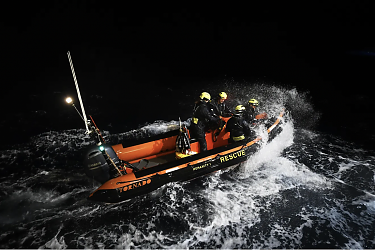
Rafts of the Medusa
Why every day on the Mediterranean is a new scandal for Europe. For both Foreign Policy and Die Zeit.
California’s Attempt at Land Reparations
How land seized from a Black family 100 years ago may be returned. The Bruce’s Beach story from a hometown angle, for The New Yorker
Day of the Oprichnik, 16 Years Later
The novelist Sorokin, the president Putin, his man Dugin, and the war in Ukraine. For n + 1.
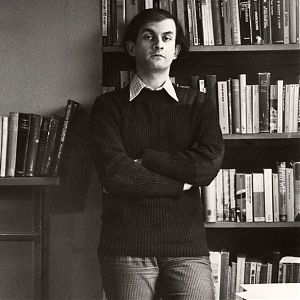
The Rushdie Narrative
Knife and the crumbling ground beneath free speech
There Must Be Some Way Out of Here
An essay on Bob Dylan, “All Along the Watchtower,” and Somali pirate captivity.
That Mystic Shit
The life of Lou Reed in two biographies

Cambodian Seafarers Talk About Pirates
Mike visits Cambodia for The New Yorker to talk about a harrowing shared experience in Somalia
The Muslim Burial
Cambodian hostages remember digging a grave for one of their own. A sequel chapter to The Desert and the Sea
The Real Pirates of the Caribbean
Adventure journalism in Southern California. A travel essay for The Paris Review.

Antifa Dust
An essay on anti-fascism in Europe and the U.S., for the Los Angeles Review of Books
Was Hitler a Man of the Left?
A book that helped Republicans in America lose their damn minds.
Ghosts of Dresden
The Allied firebombing of Dresden in 1945 destroyed the baroque center of what Pfc. Kurt Vonnegut called, in a letter home from Germany, “possibly the world’s most beautiful city.”
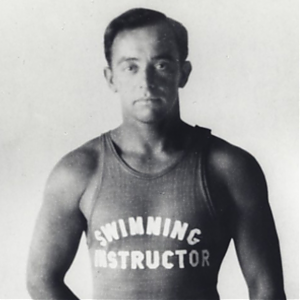
George Freeth, Biographed
The first academic treatment of America’s surf pioneer. Also, was Freeth gay?
It’s Called Soccer
Americans live on what amounts to an enormous island, defended on two shores by the sea, and we’ve evolved a few marsupial traditions that nobody else understands.
Tilting at Turbines (in the Severn River)
The morning was clear and cold, with frost on the church steeple and the cemetery grass. I had a quick English breakfast at a white-cloth table, in my wetsuit, and drove to Newnham, a village on the Severn River in Gloucestershire, parking near the White Hart Inn.

The Curse of El Rojo
I’d packed the car lightly — a bag of clothes, a bag of cassette tapes, a backpack of books, a few essential tools.














